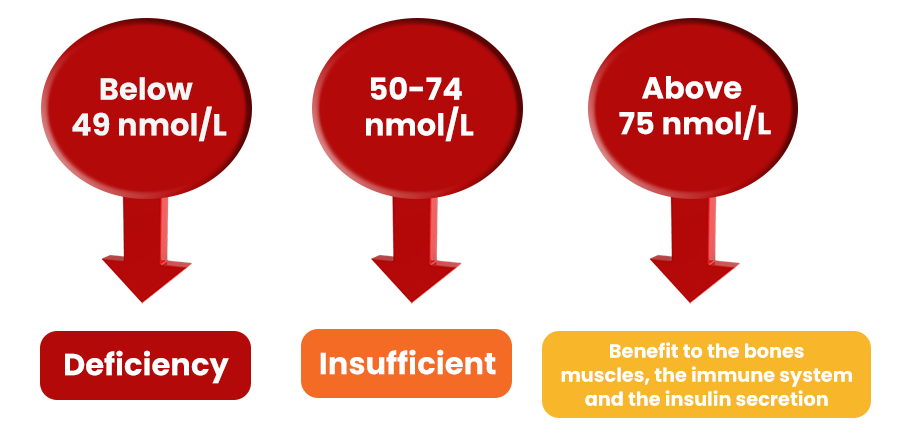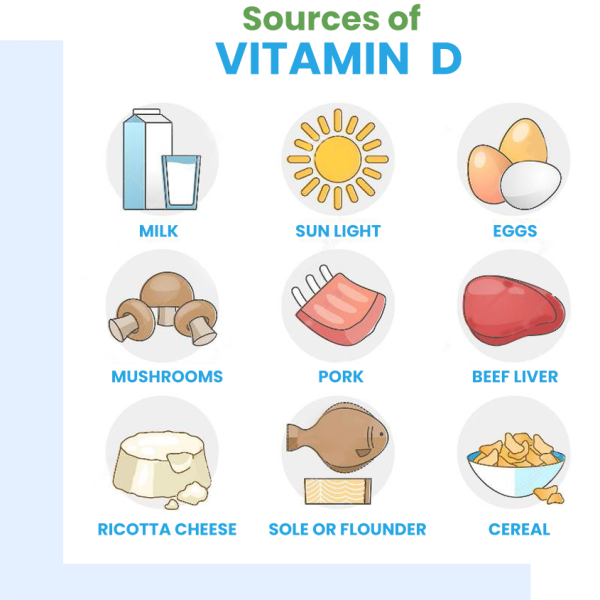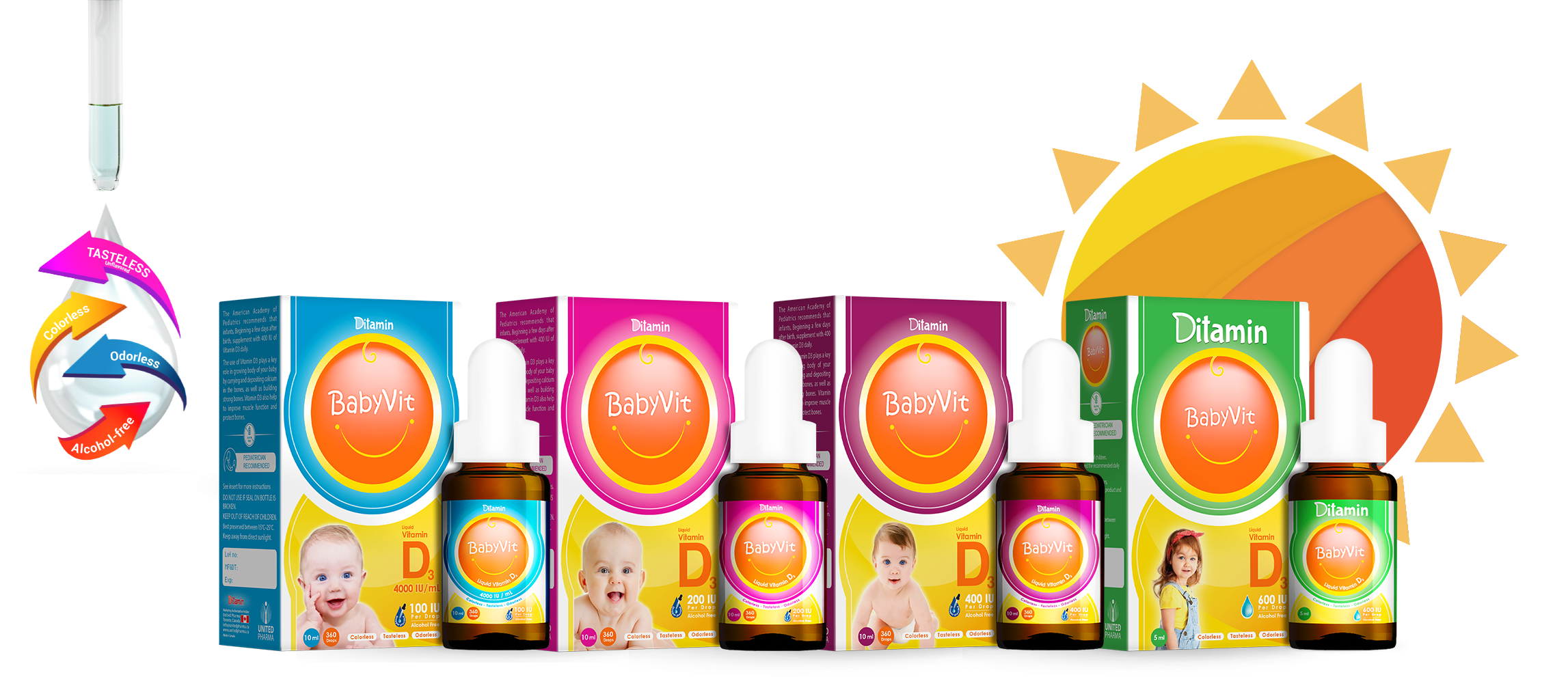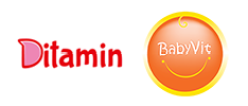The Power of ONLY 1 DROP – 1 drop of Ditamin BabyVit D3 for healthy start
Vitamin D is essential to a baby’s health and growth and is particularly necessary for the proper development of bons, teeth and normal immune system function.
Vitamins are micronutrients that are essential for the healthy functioning of human bodies.
Vitamin D is a unique vitamin that is available through an environmental source – sunlight, When the UV rays (UVB) from the sunlight fall on our skin, Vitamin D is produced in the skin and is then absorbed in the blood.
Breast milk contains only 10 % of the recommended daily intake of vitamin D (also known as the sunshine vitamin).
Recent studies show that more vitamin D or sunshine during infancy is associated with
the maintenance of good overall health. To ensure adequate vitamin D levels in breast-fed infants, Health Canada and the Canadian Pediatric Society recommend that babies should be given a vitamin D supplement starting from birth onwards.
proper functioning of your immune system
absorb calcium and develop strong bone
Strong teeth
increase muscle strength
Health Canada recommends a daily intake of 400 International Units (“IU”) of vitamin D3. It is Vitamin D which will make your child able to play around without difficulty and with good strength and energy. Vitamin D helps develop strong bones, teeth, muscles and immune system.
Vitamin D helps prevent rickets. Rickets is a condition of softening of the bones that can occur in growing children.
As the name goes, a lower level of Vitamin D in the body is termed as Vitamin D deficiency. Then what is Vitamin D insufficiency?
Well, it’s the blood level of Vitamin D measured in the form of serum 25-hydroxy-Vitamin D (calcidiol) that determines it.


Vitamin D comes from two main resources: direct sunshine and select foods.
When the sun is strong, many people are advised to stay out of direct sunlight without sunblock. Sunblock keeps your skin safe from harmful UV rays, but it also blocks your body’s ability to produce vitamin D (an SPF of 8 has been reported to reduce production of vitamin D by 95%).
The answer depends on several factors, including your age and where you live.
To get enough vitamin D from the sun or food alone is difficult. For example, you will need to eat at least a carton of eggs just to get your minimum daily intake. That’s a lot of eggs! This is why supplements are a welcomed option.
| Life Stage Group | Daily Requirement | Daily Upper Limit |
|---|---|---|
| 0-12 months | 400-1,000 IU | 2,000 IU |
| 1-3 years | 600-1,000 IU | 4,000 IU |
| 4-8 years | 600-1,000 IU | 4,000 IU |
| 9-18 years | 600-1,000 IU | 4,000 IU |
*Endocrine Society Guideline”

Breast milk usually does not provide all the vitamin D a baby needs, so breastfed babies will need a supplement of 400 IU of vitamin D per day beginning shortly after birth.

Infant formulas are fortified with vitamin D, a supplement of 200 IU of vitamin D per day for the first 12 months of life.






References:
Makin, H.L. et. al. vitamin D and its metabolites in human breast milk. Archives of Disease in Childhood. 1983. Vol. 58 p. 750-753
Vitamin D supplementation: Recommendations for Canadian Mothers and Infants. Canadian Pediatric Society. 2007.
Vitamin D supplementation for Breastfed infants; 2004 Health Canada Recommendation.

The Power of ONLY 1 DROP
1 drop of Ditamin BabyVit D3 for healthy start
© 2024 Ditamin Babyvit • All Rights Reserved